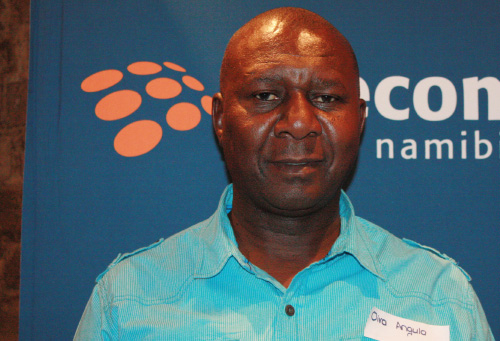Oiva Angula, the acting chairperson of Breaking the Wall of Silence,
19 May 2024
PLACE names play a very important role in our heritage and shared sense of history as a people. Naming streets, parks, roads, places, schools, buildings and any amenities after those who paid the ultimate price for our freedom is a fitting way to pay immortal tribute to their extraordinary courage, unflinching loyalty, unselfish love and supreme devotion, and also help their memories to live on.
With the above in mind, Breaking the Wall of Silence (BWS) wholeheartedly and unreservedly welcomes the decision by the Windhoek local authority to honour posthumously two victims of the Lubango dungeons with street names on 17 May 2024.
What a good way to honour and recognise those who are so deserving.
We have always demanded the memorialisation of hundreds of innocent victims as one of the critical aspects in the consolidation of transitional justice in Namibia. Without a proper engagement with the past and the institutionalisation of remembrance, societies are condemned to repeat, re-enact, and relive the horror. Forgetting is not a good strategy for societies transiting to a minimally decent condition.
The two freedom fighters who were honoured by the Windhoek local authority are Simon Ndapewa Sisingi Hiskia and Ulrich Jackson Paulino, who were unjustly detained, tortured, and eliminated in the Lubango dungeons.
The decision to (re)name these streets in honour of the two was not wrought in the politics of favouritism, lobbying and patronage, but is an honest admission of their contribution to the liberation struggle.
The day also witnessed a number of some of the nation’s icons, both living and dead, being honoured in a deliberate effort to foster understanding and unity, while reflecting on the country’s history and identity.
Hiskia, a first-class and adored football administrator, was born at Grootfontein in 1942. In 1962 he was expelled from Augustineum High School at Okahandja for his political activism against apartheid colonial rule.
By 1979, following the Kranzburg bomb blast, the apartheid authorities suspected that his vehicle was used to transport the guerrillas who planted the bomb. As a result, his vehicle was impounded and later sold on auction. He went into hiding and eventually escaped the country out of fear he may be accused and sentenced in terms of the Terrorism Act, No. 83 of 1967 in that he had rendered assistance to a person or persons to be believed to be “terrorists”.
Paulino was a young guard of the Namibia Catholic Youth League (Nacayul) in Windhoek, a skilled marimba player, and an ardent Namibia National Students Organisation (Nanso) activist.
He was part of the class of 1988, who directly confronted the colonial administration by mobilising and organising students and the general populace against colonialism, foreign domination and the repressive education system.
The June 1988 student uprising profoundly changed the socio-political landscape of Namibia. In the wake of the political upheaval and the intensified repression by the apartheid police and army, Paulino skipped the country with others into Angola. According to eyewitness accounts, he was called in the middle of the night and never seen alive again.
Paulino’s fate is similar to that of another famous Nanso leader, Johannes Axab Hendricks, who was detained by South African Security Police, and shortly thereafter left Windhoek and crossed the border to join the liberation movement in exile in Angola. Axab was never seen again.
He was detained and disappeared after interrogation by the security apparatus of the liberation movement that was in the vortex of a murderous paranoia about spies, especially with regard to young educated southerners.
As a movement striving to find closure to the human rights violations committed by the liberation (Swapo), BWS has welcomed the memorialisation of the two Namibian patriots through the (re)naming of streets in their name.
It is indeed a good sign and a hopeful flicker of light that those who died under horrible circumstances falsely accused of being spies are recognised and memorialised with this gesture of naming streets after them in recognition of their role in the struggle for independence and for having sacrificed their invaluable lives at the hands of their own comrades.
The two fallen heroes have now joined three other freedom fighters who were killed in the Lubango dungeons and memorialised in the same way: Tauno Hatuikulipi, Pejavi Munjaro, and Victor Nkandi.
However, we must remember there are hundreds of Namibians who perished in the Lubango dungeons and who must be publicly absolved and whose dignity should be restored.
It is equally important that an official and direct apology be extended to the living victims and families affected without further delay. With what is now happening, it is time for Swapo to come out and have an honest and serious conversation about the Spy Drama and what was happening in Swapo in exile before independence.
With a history of war crimes and gross human rights violations, remembering the past is essential for the compliance of the rights to truth, restorative justice, healing and guarantees of non-repetition.
Stay informed with The Namibian – your source for credible journalism. Get in-depth reporting and opinions for
only N$85 a month. Invest in journalism, invest in democracy –
Subscribe Now!






